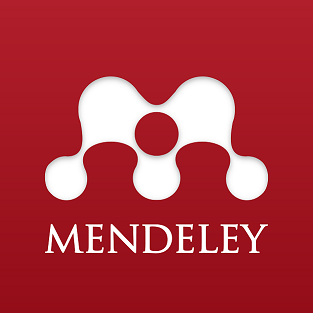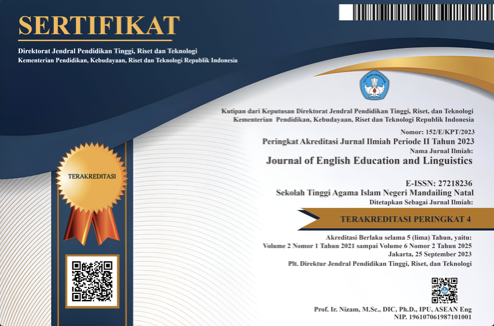UTILIZING PODCAST TO IMPROVE INFORMATICS MANAGEMENT STUDENTS’ LISTENING COMPREHENSION AND PARTICIPATION AT AMIK MITRA GAMA
DOI:
https://doi.org/10.56874/jeel.v1i2.255Keywords:
Podcast, Listening Comprehension, Participation, Informatics Management StudentsAbstract
Technology of podcasting becomes a popular teaching media in education nowadays. It gives the students opportunity to study anytime and anywhere. It is flexible, dynamics and powerful to improve students listening comprehension. It gives new challenge in the context of language learning especially listening that as first skill of language acquisition. This was a classroom action research study. It aims at identifying the listening improvement of third semester students of Informatics Management at AMIK Mitra Gama academic year 2019/2020 by using podcasts. The participants were 24 students(3 MMI class). Finding of this study showed that utilizing podcast can improve not only student’s listening comprehension achievement (66.96% in fisrt cycle to 68,29% in second cycle) but also student’s participation (46,67% in cycle 1 to 56,67% in cycle 2). In sum, podcasts can be an attractive media in teaching listening at AMIK Mitra Gama.
References
Gilakjani, A. P., & Sabouri, N. B. (2016). The Significance of Listening Comprehension in English Language Teaching. 6(8), 1670–1677.
Jain, S. (2013). Advantages of Podcasts in English Language. Journal of Indian Research, 1, 158–163.
NamazianDost, I., Bohloulzadeh, G., & Rahmatollahi, R. (2017). The Effects of Using Podcast on Listening Comprehension among Iranian Pre-intermediate EFL Learners. International Journal of Applied Linguistics and English Literature, 6(6), 57. https://doi.org/10.7575/aiac.ijalel.v.6n.6p.57
Nunan, David. 1991. The Practice of English Language Teaching. New York: Prentice Hall.
Nunan, David. 1992. Research Methods in Language Learning. New York: Cambridge University Press.
O’Malley, J.M. Chamot A.U and Kuper. 1989. Listening Comprehension Strategiesin Second Language Acquisition. Jornal of Applied Linguistics. 10(4). 418-437.
Downloads
Published
Issue
Section
License
All articles published in the Journal of English Education and Linguistics are licensed under a Creative Commons Attribution-ShareAlike 4.0 International (CC BY-SA) license. This means anyone is free to copy, transform, or redistribute articles for any lawful purpose in any medium, provided they give appropriate attribution to the original author(s) and Journal of English Education and Linguistics, link to the license, indicate if changes were made, and redistribute any derivative work under the same license.
Copyright on articles is retained by the respective author(s) without restrictions. A non-exclusive license is granted to the Journal of English Education and Linguistics to publish the article and identify itself as its original publisher, along with the commercial right to include the article in a hardcopy issue for sale to libraries and individuals.
Although the conditions of the Creative Commons Attribution-ShareAlike 4.0 International (CC BY-SA) license do not apply to authors (as the copyright holder of your article, you have no restrictions on your rights), by submitting to the Journal of English Education and Linguistics, authors recognize the rights of readers and must grant any third party the right to use their articles to the extent provided by the license.

This work is licensed under a Creative Commons Attribution-ShareAlike 4.0 International License.








